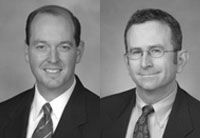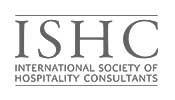When Being Hospitable Can Land You In Trouble | By William Bosch, ISHC,and Jonathan Drimmer
With the U.S. Department of Justice issuing subpoenas like free rooms to high rollers in Las Vegas, the Foreign Corrupt Practices Act (FCPA) rapidly has become a growing hazard for individuals and businesses operating abroad. As seen by the U.S. government’s case against York International, vendors to the hotel industry are not being spared. And it is only a matter of time before the government looks more closely at other industry practices, including hotel development and operations. Given the potential for jail time, multimillion-dollar fines and the high priority the government is placing on FCPA enforcement, it is the kind of guest best avoided. 
This article, the first in a series of four, focuses on the FCPA and its requirements. Subsequent articles will describe its general application to the hotel industry, the critical aspects of a compliance program to avoid FCPA problems and cautionary tales from recent FCPA enforcement efforts that shed light on the types of activities that could land you in trouble.
A priority for law enforcement
At its core, the FCPA forbids giving “anything of value” to a foreign official to acquire an unjustified benefit. Foreign officials include all government personnel, from cabinet ministers to low-level bureaucrats to political candidates, as well as their family members. It also includes private individuals performing state functions, and employees of private companies owned in part or controlled by a foreign government. The FCPA applies to a wide scope of U.S. and foreign entities and individuals – including all companies doing business in the U.S. or listed on a U.S. exchange and their employees, all U.S. citizens and nationals, all non-U.S. nationals who perform acts in the U.S., and others. In short, chances are you are subject to the FCPA, and if you have any contacts with foreign officials you need to understand what the FCPA prohibits.
Although the FCPA has been in existence for 30 years, it recently has been dusted off and now is being enforced with a vengeance. It is the Justice Department’s second highest law enforcement priority after terrorism, and the number of actions brought under the FCPA and the size of the penalties have skyrocketed. There are about 100 companies subject to open FCPA investigations, quadruple the number four years ago, with even more investigations directed against individuals. Coordination between the Justice Department and its foreign counterparts also takes place on a regular basis. In December, Siemens paid US$800 million in fines to the U.S. government. Earlier this year, Halliburton/KBR agreed to pay a total of US$579 million. Numerous individuals are serving jail time for violating the FCPA.
Hotel industry in the FCPA target zone
In practical terms, an FCPA violation can occur in just about any business interaction with a foreign government or state-controlled entity. For the hospitality industry, the range of potential violations is limitless, including: securing development assistance and partnerships; obtaining building, food, or beverage permits; facilitating health or safety inspections; providing discounted rooms to government personnel; resolving tax matters; securing immigration visas for foreign workers; expediting goods through customs; advertising on state-owned or operated television or radio stations; and innumerable other activities.
The form of a prohibited payment can be cash, but also includes gifts, vacations, job opportunities, meals and entertainment, charitable contributions, educational expenses, and any other “quid” given to get a government “quo.” Under the FCPA, the size of those payments matters little; the law covers minimal “tips” or incidental favors because the government measures the offense, and hence the penalty, by the amount of the benefit being obtained. Nor is it relevant that payments are standard procedure in a particular country, or that the payment is made by a local agent or other third party—if you should have known that the agent likely would make an improper payment, the FCPA still can nab you.
York International
The FCPA threat to the hotel industry is not merely theoretical, as the case of York International proves. York, a global provider of heating and air conditioning products and services, and certain of its subsidiaries were charged with making a variety of improper payments to obtain government projects in Turkey, Bahrain, Egypt, India, Turkey, Iraq, the United Arab Emirates and elsewhere. That included payments to obtain contracts in connection with the construction of a government-built and -owned luxury hotel and convention complex in Abu Dhabi; specifically, the U.S. government alleged that a York subsidiary paid approximately US$522,500 to an intermediary knowing that most of the money would be passed to UAE officials. In October 2007, York agreed to pay the U.S. government US$22 million in penalties and fines, accepted a compliance monitor for three years, and the Justice Department deferred any prosecution.
Given the government’s tendency to focus its attention on industry wide practices, the case sends a clear warning that the U.S. government will be looking closely at how vendors to the hotel industry do business abroad. And there is no reason to believe that only vendors are under scrutiny, given the international scope of so many hotel industry activities.
In next week’s article, we discuss more specifically the types of activities that could implicate FCPA exposure for the hospitality industry.

 William Bosch is a partner in the Washington office of Steptoe & Johnson LLP, where he is a member of the Litigation group. Mr. Bosch concentrates his practice on complex litigation and trials, with a particular emphasis on issues involving commercial disputes and intellectual property. Mr. Bosch has successfully litigated cases on behalf of his clients in state and federal courts throughout the country, both at the trial and appellate levels, and also has handled numerous matters through alternative dispute resolution, including mediation and arbitration. Notably, Mr. Bosch was trial counsel in the landmark Woodley Road case that resulted in a multi-million dollar jury verdict against a major hotel management company on behalf of the hotel owner. Notable arbitrations include the enforcement of contractual agreements on behalf of an international trade show association and the valuation of a domestic operating affiliate of a London-based multinational lodging company. More...
William Bosch is a partner in the Washington office of Steptoe & Johnson LLP, where he is a member of the Litigation group. Mr. Bosch concentrates his practice on complex litigation and trials, with a particular emphasis on issues involving commercial disputes and intellectual property. Mr. Bosch has successfully litigated cases on behalf of his clients in state and federal courts throughout the country, both at the trial and appellate levels, and also has handled numerous matters through alternative dispute resolution, including mediation and arbitration. Notably, Mr. Bosch was trial counsel in the landmark Woodley Road case that resulted in a multi-million dollar jury verdict against a major hotel management company on behalf of the hotel owner. Notable arbitrations include the enforcement of contractual agreements on behalf of an international trade show association and the valuation of a domestic operating affiliate of a London-based multinational lodging company. More...
 Jonathan C. Drimmer is a partner in the Washington office of Steptoe & Johnson LLP. Mr. Drimmer’s practice focuses on the extraterritorial application of U.S. laws, assisting clients develop preventative strategies, navigate discrete questions and problems, and by defending them in litigation. A recognized authority on the Alien Tort Claims Act (ATCA), he advises and represents clients in matters related to the ATCA, the Foreign Corrupt Practices Act, human rights, Corporate Social Responsibility initiatives, financial reporting and securities laws, cross-border U.S. government enforcement efforts, business and personal tort liability, money laundering and other areas. More...
Jonathan C. Drimmer is a partner in the Washington office of Steptoe & Johnson LLP. Mr. Drimmer’s practice focuses on the extraterritorial application of U.S. laws, assisting clients develop preventative strategies, navigate discrete questions and problems, and by defending them in litigation. A recognized authority on the Alien Tort Claims Act (ATCA), he advises and represents clients in matters related to the ATCA, the Foreign Corrupt Practices Act, human rights, Corporate Social Responsibility initiatives, financial reporting and securities laws, cross-border U.S. government enforcement efforts, business and personal tort liability, money laundering and other areas. More...
Steptoe & Johnson LLP
www.steptoe.com/
1330 Connecticut Avenue, NW
USA - Washington, DC 20036
Phone: 202/429-8111
Fax: 202/261.0616
When being hospitable can land you in trouble (part 2) | By William Bosch, ISHC,and Jonathan Drimmer
